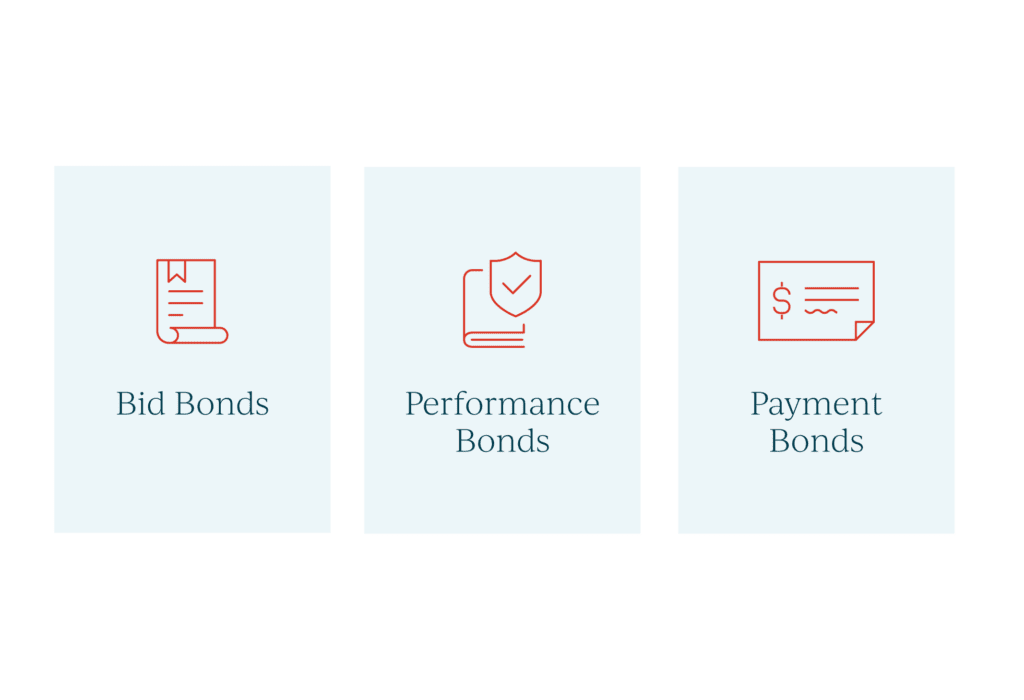From Bid to Build: Navigating Construction Surety Bonds

From Bid to Build: Navigating Construction Surety Bonds
Chances are you’ve had your fair share of interactions with surety bonds. The mere mention might make some want to click away faster than you’d flee from a collapsed scaffolding. But hold on a second. What if you shifted that perspective before you write them off as just another tedious financial obligation you have to check off your list? What if, instead, you see them as a tool that can help you win more projects and stand as your badge of trust and reliability in the industry?

Recognizing the importance of construction surety bonds
First things first, what is a construction surety bond? Simply put, it’s a three-party agreement—between the project owner or the government agency, the contractor (you) and the surety—ensuring the contract’s completion. If a contractor can’t fulfill their obligations, the surety steps in to make things right financially or by finding someone who can complete the job.
You might think, “Isn’t that what insurance is for?” Not quite. The key difference lies in the protection focus. Insurance is all about managing risk and compensating for losses, expecting things might go wrong. Surety bonds, however, are based on the principle of no loss—they’re there to prevent failure and ensure performance and payment of contractual obligations, not just to pick up the pieces afterward.
Legally, you’ve likely heard of the federal Miller Act and its state-level siblings, the Little Miller Acts. Given the lack of lien rights on public property, these require surety bonds on public construction projects to protect public interests and ensure subcontractors and suppliers get paid—meaning snagging a bond for construction work isn’t a choice; it’s a mandate.
Exploring bid, performance and payment bonds in construction projects
Construction bonds can be broadly categorized into three types:
- Bid Bonds ensure that if the contractor’s bid is accepted and they are awarded the project, they will sign the contract. The bid bond compensates the project owner if the contractor fails to uphold their bid.
- Performance Bonds guarantee the completion of the project according to the contract’s specifications, schedule and budget.
- Payment Bonds assure that the contractor will pay their subcontractors, laborers and suppliers, protecting those who have provided labor and materials for the construction project.
Each serves a unique purpose, safeguarding different aspects of a project from financial loss and project delays.
Identifying the elements that affect surety bond prices
So, how much will this required bond cost you? Generally, you’re looking at a one-time fee up front, based on the contract amount, but the price of a construction bond can vary. And if the project scope expands, expect an adjustment fee.
Underwriters will assess your company’s track record and financials to determine the surety bond premium. But it’s not just about past successes and current financial stability. Underwriters also consider the size and scope of the project you’re looking to bond. Larger projects generally entail more risk, which could lead to higher bond premiums.
Managing the costs effectively lies in understanding what underwriters are looking for and presenting your company in the best light possible.

Navigating the process of acquiring construction bonds
Getting your hands on a surety bond involves a bit of paperwork and patience. When applying for your bond, expect to submit your most recent balance sheets, income statements, cash flow statements and sometimes even your tax returns. These documents paint a picture of your financial health. The surety needs to assess your liquidity, profitability and overall fiscal responsibility. In simpler terms, they’re determining if you have enough cash on hand, if you’re making more money than you’re spending and if you’re managing your debts wisely.
The underwriting process can be time-consuming because the surety wants to bet on a sure thing—that’s you, by the way. They’re not just looking at numbers; they’re assessing risk. Your company’s history plays a crucial role here. A track record of successful projects, stable growth and solid business practices signals low risk.
On the personal side, stakeholders’ finances are scrutinized to ensure no undue personal risk could impact the company’s ability to perform. It’s all about confidence: the surety needs to feel confident you can uphold its part of the deal, just as much as you need to trust them to support you.
Understanding the surety’s perspective can help you prepare and make the bonding process less daunting.

Understanding the responsibilities associated with your surety bond
If a claim is made against your bond, it’s not as simple as the surety company writing a check and everyone moving on. The surety will step in, sure, but they’ll expect reimbursement for any payouts, putting the contractor on the hook to pay back every penny of the bond claim. The ramifications of a claim also extend beyond the immediate financial hit. It can significantly impact your reputation and ability to secure future construction bonds or projects.
Examining the function of brokers in surety bonds
Brokers are your go-to for navigating the surety bond landscape. They match contractors with surety companies that best fit their needs and help navigate the underwriting process. A broker’s value extends beyond the immediate transaction—working with you to understand your long-term goals and advise on strengthening your financial statements and improving your company’s bondability over time.
Plus, with their finger on the pulse of the industry, they’re among the first to know about regulatory changes, market trends and opportunities for their clients.

Concluding thoughts: Achieving success with surety bonds
Surety bonds play a pivotal role in the construction industry. They’re not just a legal requirement in construction contracts but a tool that can open doors to new opportunities. With this knowledge, contractors can confidently navigate the surety bond world, turning a perceived nuisance into a powerful ally in the competitive construction industry.If you have questions, Crane Agency is here to help. Our team is dedicated to assisting contractors like you to navigate the complexities of surety bonds, ensuring your success on every project.

